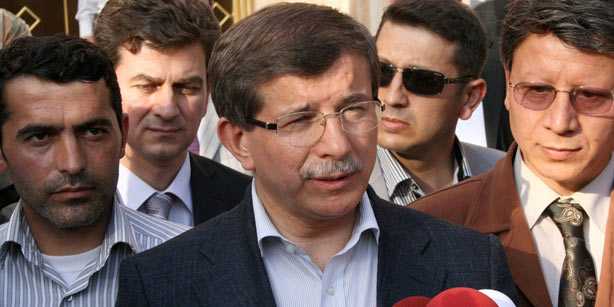Mustafa Akyol, a Turkish journalist for Al-Monitor and The Hurriyet Daily News, is the author of “Islam without Extremes: A Muslim Case for Liberty.”
MARCH 27, 2013
It is unclear whether President Obama’s recent visit to Israel helped build the much-hoped peace between Israelis and Palestinians. Yet, in a quite unexpected move, it certainly helped build peace between Israel and Turkey.
The two countries were not at war, of course. But the longtime relationship between Turkey and Israel had fallen to one of its lowest points, after the Gaza flotilla affair of May 2010, in which nine Turks, one of them an American-Turkish citizen, were killed by Israeli commandos. Turkey had immediately asked three things from Israel: apology, compensation and the easing of the blockade on Gaza. By February 2011, Israel had made clear it would not comply, and Turkey expelled the Israeli ambassador to Ankara, reducing the diplomatic relations between two countries.
Obama was wise enough to capture this moment to reconcile his two key allies in the Middle East.
Since then, political commentators had been divided on the future of Turkish-Israeli relations. Some, especially those who are on the Israeli right, argued that the “New Turkey” of Prime Minister Recep Tayyip Erdogan and his “Islamist” cadre had proven fanatically anti-Israel, and therefore no reconciliation would ever take place unless a new government came to power in Turkey. Others, including me, noted that while the Erdogan government is strongly pro-Palestinian, it is also pragmatic and is not categorically anti-Israel. We also pointed out that Turkey had lowered relations with Israel back in 1982, to protest the annexation of East Jerusalem, but then restored full relations in 1991, in the light of the Madrid peace talks between Israelis and Palestinians.
The odds for an apology seemed even more distant after Erdogan’s recent condemnation of “Zionism,” which created yet another tension between Ankara and Jerusalem. But soon, Erdogan made clear that his government “recognized Israel’s existence within 1967 borders based on a two-state solution.” This probably gave Obama the grounds for persuading Prime Minister Benjamin Netanyahu of Israel to offer an “apology to the Turkish nation,” in a phone call to Erdogan.
Here in Turkey, the apology has been widely welcome, and is interpreted by the media as a diplomatic victory for the Turkish government. It is also noted that two countries now share common concerns about the bloody civil war in Syria and even the Iranian influence in the region. Obama was wise enough to capture this moment to reconcile his two key allies in the Middle East. Netanyahu and Erdogan were pragmatic enough to agree and move on.
via Progress for Turkey, Israel and the U.S. – Room for Debate – NYTimes.com.






